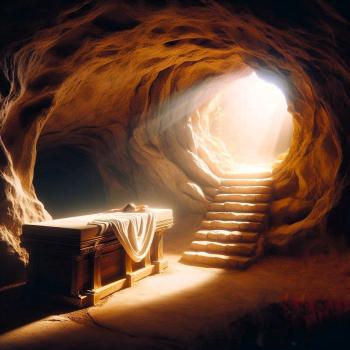INTRODUCTION
In the final chapter of his prophecy, Micah speaks in the first person, as the representative Israelite. In the midst of social chaos, he waits on Yahweh to show His righteousness. Someday, the Lord who treads on Judah’s high places (1:3) will tread her iniquities and cast them into the sea (7:19).
THE TEXT
“Woe is me! For I am like those who gather summer fruits, like those who glean vintage grapes; there is no cluster to eat of the first-ripe fruit which my soul desires. The faithful man has perished from the earth, and there is no one upright among men . . . .” (Micah 7:1-20).
BRIARS AND THORNSLike Jesus in the gospels (Matthew 21:18-22), Micah searches the trees for figs and the vines for grapes but finds none (Micah 7:1). The tree and vine are symbols of what Judah should be – a fruitful people producing delightful godliness for Yahweh. Instead they are unproductive briars and thorns (v. 4), who spend their time attacking one another and hunting each other like animals (v. 2). Because Yahweh punishes Judah, there is confusion everywhere, as neighbors, friends, lovers, and family members lose trust in one another (vv. 5-6; cf. Matthew 10:36). Micah refers to a Gentile invasion and to exile, which sets Jews against one another.
PATIENT FAITH
Anticipating the faith of Habakkuk (Habakkuk 3:17-19), Micah waits for Yahweh to shine His light into the darkness of Israel (vv. 7-8). Judah will suffer Yahweh’s indignation, but the Lord will not be angry forever, but will take up Judah’s case against the nations that have oppressed Judah (v. 9). This deliverance is an act of “justice” or “righteousness” (v.9), and the ones who mocked Judah’s faith in Yahweh will be trampled (v. 10). Jerusalem meanwhile will be rebuilt, and will grow as exiles return from Assyria and Egypt to swell the population (v. 12). It will be a new exodus, as Yahweh shepherds His people out of bondage and leads them to green pastures (vv. 14-15). The nations that have devoured Judah will be crushed and will crawl in the dust like a serpent, like Satan (vv. 16-17; cf. Genesis 3:14-15). Judah’s whole history is a recapitulation of the history of Adam in the garden: Judah sins and bears the Lord’s anger, but Yahweh turns His anger against Judah-Adam’s accusers (Satans) and brings them to the dust.
TRAMPLING SIN
Yahweh’s triumph over Judah’s enemies is a great victory, but Micah ends with a prophecy about an even greater triumph, an even greater display of Yahweh’s justice and righteousness. Yahweh will also pardon Judah’s sins, trample down their iniquities, and cast them all into the sea (vv. 18-19). Yahweh’s two victories are connected: He delivers Judah from her enemies as a demonstration that He has delivered her from her sins, as a public display of her righteousness. This public display of Judah’s forgiveness is also a public display of Yahweh’s own righteousness. All this He does to fulfill the promise made to Abraham (v. 20). Zacharias knew this prophecy. He knew that the coming of the Christ would bring “salvation from our enemies” and “forgiveness of sins” in fulfillment of “the oath He swore to Abraham our father” (Luke 1:67-79).















